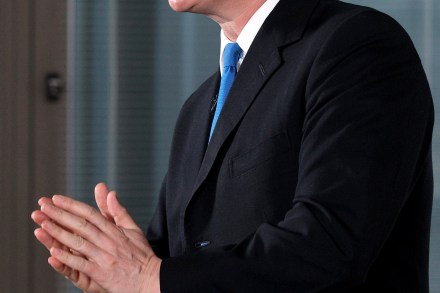Reid: essentially, Miliband’s not fit for purpose
John Reid made a bruising and quite extraordinary appearance on the Daily Politics earlier today. He demolished the Labour leader. Reid’s analysis was concise: there has been a vacuum at the heart of Labour since Tony Blair’s departure. Gordon Brown was divisive, at best, and clearly not up to the demands of leadership. And, Reid intimated, Brown’s child shares his father’s foibles. Ed Miliband has not impressed so far, having failed to understand the cause of New Labour’s success. Case in point, his support for the coalition’s very liberal policies on crime, and his inability to perceive that New Labour’s sustained dominance was due to constant policy renewal, not ideological


















